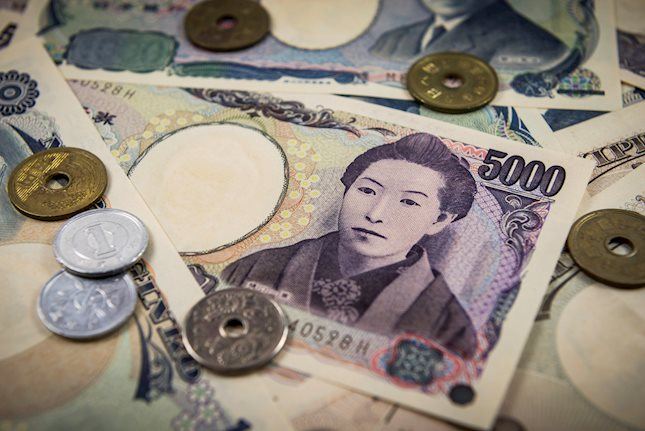1. through laws and regulations
2. through fiscal policies
3. through monetary policies
4. through appreciation or depreciation of the country’s currency
There are no other ways.
When either of 1) to 3) fails, you have 4) – which will appreciate in value should the economy do well – or will depreciate in value should the country not do so well. In many ways the currency regulates whatever imbalances there are in a country’s economy caused by 1) to 3).
By having a common currency, each of the Euro area countries don’t have the “beauty” of a currency at would adjust whatever imbalances there are in each country’s economy. What it means in practice is that they have to put more emphasis on 1) to 3) and in reality – long-term - they will all have to do the same.
Both 1) and 3) are broadly speaking common for all Euro area countries:
1) through their European Union membership and 3) through their participation in the European Central Bank and the regulations that follow. They simply cannot set their own monetary policies.
In reality all of them are ONLY left with 2) – fiscal policies - when managing their own economies.
Greece is a country with
• enormous debt burden
• limited ways to obtain economic growth
• a need of conducting substantial structural reforms
• humanitarian problems for parts of the population in terms of their basic needs
• social problems from high and long-lasting unemployment
The country is in political turmoil, which could turn into civil unrest.
There are very few arguments why Greece should have the same currency as other Euro area countries – unless it is helped in terms of bringing its debt level to the level of other Euro area countries - and - is willing themselves to adopt fiscal policies that removes the need to use a currency to regulate imbalances.
Instead
• the Greeks want to keep the Euro but they do not want to do what is needed to have it
• the Greek government wants to keep the Euro but doesn’t want to tell people - nor to
implement policies - which would eliminate the need for a depreciating currency
• Euro area countries want to keep Greece as a member and for Greece to have Euro as its
currency but don’t want to restructure Greece’ debt to an affordable level
They are all wrong for whatever reasons they have.
Going back to the four ways you manage an economy, you simply cannot start by freezing the 4th leg and as such the Greek population, their government and creditors all start at the wrong end when they put the currency wish first – UNLESS – they all would be prepared to sort out what is needed in fiscal terms.
What is needed to be done is
i. that the Greek population accept that big reforms are needed and is willing to adapt to suchii. that they elect lawmakers that are willing to put necessary reforms in place
iii. that creditors conduct a substantial restructuring of Greece’s debt, making it affordable but on condition of i) and ii)
iv. that humanitarian aid is provided to Greece in terms of their basic needs – not money – but medicines, food, energy products – whatever is needed to avoid human catastrophes
It is only when i) to iv) is in place that the euro is the right currency for Greece and unless Greece is “put in shape” along the lines of i) to iv), the country should have another currency.
Every party to the Greek discussion take a wrong approach when they see the currency question as a political one and one which they don’t want to touch.
In reality – the currency question is one about the laws of economics – either they like it or not.
Recommended Content
Editors’ Picks

AUD/USD corrects toward 0.6850, awaits US PCE Price Index
AUD/USD is falling back toward 0.6850 in Friday's Asian trading, reversing from near 19-month peak. A tepid US Dollar bounce drags the pair lower but the downside appears called by the latest Chinese stimulus measures, which boost risk sentiment ahead of US PCE data.

USD/JPY pares gains toward 145.00 after Tokyo CPI inflation data
USD/JPY is paring back gains to head toward 145.00 in the Asian session on Friday, as Tokyo CPI inflation data keep hopes of BoJ rate hikes alive. However, intensifying risk flows on China's policy optimism support the pair's renewed upside. The focus shifts to the US PCE inflation data.

Gold price consolidates below record high as traders await US PCE Price Index
Gold price climbed to a fresh all-time peak on Thursday amid dovish Fed expectations. The USD languished near the YTD low and shrugged off Thursday’s upbeat US data. The upbeat market mood caps the XAU/USD ahead of the key US PCE Price Index.

Avalanche rallies following launch of incentive program for developers
Avalanche announced the launch of Retro9000 on Thursday as part of its larger Avalanche9000 upgrade. Retro9000 is a program designed to support developers with up to $40 million in grants for building on the Avalanche testnet.

RBA widely expected to keep key interest rate unchanged amid persisting price pressures
The Reserve Bank of Australia is likely to continue bucking the trend adopted by major central banks of the dovish policy pivot, opting to maintain the policy for the seventh consecutive meeting on Tuesday.

Five best Forex brokers in 2024
VERIFIED Choosing the best Forex broker in 2024 requires careful consideration of certain essential factors. With the wide array of options available, it is crucial to find a broker that aligns with your trading style, experience level, and financial goals.